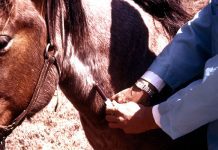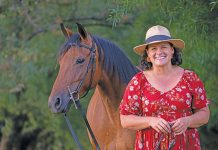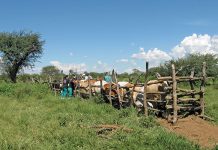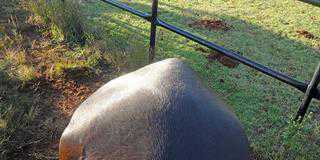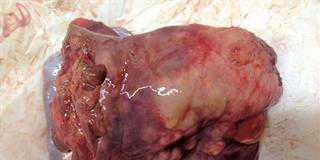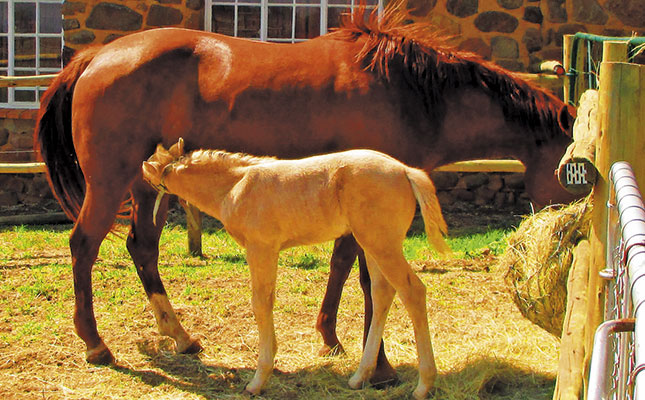
A balanced broodmare ration is crucial in maintaining the health of both mare and foal. At the same time, broodmares should not be stressed while pregnant as this could result in foetal loss or foaling difficulties. This means avoiding the transport of heavily pregnant mares and certain medications such as dewormers.
Horses are herd animals and are less stressed in the company of other horses, even if across a fence. Kicking, biting and bullying do not usually occur if mares are kept in a broodmare band. On the other hand, it is not advisable to introduce a heavily pregnant mare into an unfamiliar herd.
Recent research has shown that incorrect feeding management can also be stressful for broodmares. Horses are trickle feeders that graze naturally throughout the day. Forage is consumed for about 12 to 18 hours a day in the wild.
The quality of food given to a working horse is very different; they are fed a main concentrated meal two or three times a day and have access to hay when not being worked.
Carriage horses were fed chopped hay or chaff whenever the carriage came to a halt. And today those who own competition horses such as jumpers will provide them with a hay bag between classes (as well as ensuring they have access to water, of course).
Natural grazing
Broodmares on natural grazing are usually able to access enough roughage. But minerals, proteins and vitamins are likely to be lacking unless you provide feeding stations, especially next to the waterholes or cribs where they drink.
The proportion of calcium, phosphate, micro-elements, salt and protein in the broodmare ration is critical throughout pregnancy and even more important after foaling. Poorly balanced rations result in thin broodmares and foals that develop slowly with crooked legs.
More intensive
If the management is more intensive and the mares are stabled at night – essential in those parts of South Africa prone to African horse sickness – providing enough hay can be a challenge. In the northern hemisphere, broodmares kept indoors because of ice, snow and rain are often fed only roughage twice a day, when they get their concentrate ration.
A recent study found that broodmares with access to hay day and night had significantly better reproductive performance. They came on heat more regularly and had higher conception rates than those fed hay twice a day or only every evening, even if the same amount of hay was fed over a 24-hour period.
If the interval between feeds was too long, horses became stressed and showed abnormal restlessness, wind-sucking and crib-biting, as well as an increase in stomach ulcers.
This is an interesting finding, as it substantiates what many breeders have always suspected. That is, it is better to feed smaller amounts of hay at regular intervals (three to four times a day) and also to offer concentrate three times a day to stabled horses. Overfilling a hay net at night is also expensive, as the horse will simply consume all of it in record time, then begin to paw and fuss.
Dr Mac is an academic, a practising equine veterinarian and a stud owner. Email her at [email protected]. Subject line: Horse Talk. ▪FW
This article was originally published in Farmer’s Weekly, 20 January 2017.


